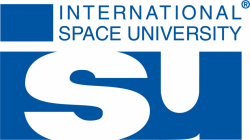Partner News
ISU Students Win Barcelona Aerobatics Zero-Gravity Challenge
Written by: developer
 Strasbourg, France (Nov. 18, 2010) – Five students from the International Space University (ISU), Coordinator Alexandra Kindrat (Canada), Heather Allaway (Canada), Jagruti Pankhania (UK), Alexander Melynshyn (Canada) and Jonathan Muller (France), winners of the 1st edition of Barcelona Aerobatics Zero-Gravity Challenge, flew their experiment on October 31st from the Sabadell Airport near Barcelona, Spain.
Strasbourg, France (Nov. 18, 2010) – Five students from the International Space University (ISU), Coordinator Alexandra Kindrat (Canada), Heather Allaway (Canada), Jagruti Pankhania (UK), Alexander Melynshyn (Canada) and Jonathan Muller (France), winners of the 1st edition of Barcelona Aerobatics Zero-Gravity Challenge, flew their experiment on October 31st from the Sabadell Airport near Barcelona, Spain.
The Barcelona Aerobatics Zero-Gravity Challenge was organized by the Aeronautics and Space Research Center (CRAE) at the Universitat Politècnica de Catalunya (UPC). The contest, led by Professor Antoni Pérez-Poch of CRAE, challenged undergraduate and postgraduate students to design and build a zero-gravity experiment in a limited amount of time.
The winners were publicly announced during the International Astronautical Congress held recently in Prague, Czech Republic. The winners are offered the unique opportunity of flying their experiment with the UPC Microgravity Aerobatics Platform held in Sabadell Airport. This innovative infrastructure is the result of research led by Prof. Antoni Pérez-Poch, the first of its kind in Europe. Parabolic flights on modified commercial jets are a well-established way of achieving up to 20 seconds of microgravity per parabola. A number of experiments are tested in these large jet airplanes. This challenge was conducted using a much smaller plane and demonstrated up to 8 seconds of microgravity can be achieved with a light single-engine aerobatic plane. This enables easier access to microgravity research with a significant reduction in cost, compared with conventional parabolic flight campaigns.
The ISU experiment entitled “Perspective-Reversible Figures in Parabolic Flight,” led by Space Neurophysiogist and ISU Professor, Gilles Clément, investigated the role of gravity on depth perception. Subjects were presented with ambiguous three-dimensional figures that can be interpreted in two different ways. The subject perceives one view, and after a few seconds, the view changes or reverses to the other view. The number of reversals was compared in normal gravity, microgravity, and hyper gravity. Preliminary results indicate fewer reversals in microgravity. “The results of this experiment suggest that microgravity periods as short as 8 seconds can alter the way we perceive our three-dimensional environment. This is yet more evidence that we ‘see’ the world not just through our eyes, but also using our sense of balance and our orientation relative to gravity,” said Professor Clement.
However, the complete data analysis produced by the experiment is not yet complete. Team leader and Coordinator, Alexandra Kindrat, indicated the benefits of the experiment go beyond scientific knowledge: “as coordinator, I appreciated the collaboration of our international team from diverse academic backgrounds. The benefits of this educational campaign are absolutely exponential: it not only provides data for our scientific interests but also encourages and promotes enthusiasm for further space-related research to all students. We are grateful for this opportunity to pursue scientific research, to experience zero-g, and to have such support from the space and academic sectors.”
Jonathan Muller, local Strasbourg resident and ISU student, describes the entirety of the experience as “magic.” His experience in his own words: “Putting aside the obvious interest of such an experiment for the scientific community, there is something absolutely magic about this experience. It’s amazing to look back and see how students from three different countries that met for just two short months in Strasbourg succeeded in designing and perform a microgravity experiment in a very limited amount of time. For us, an additional challenge was that we came from very different academic and professional backgrounds: from a medical doctor to a business student to a scientific researcher. I would have never imagined myself having such an opportunity coming from a business school (EM Strasbourg), but I now realize that diversity make us more efficient, and secondly-and definitely more importantly-it gave us a better understanding of the world we are living in. I see now that through sharing the same enthusiasm for space is the first step to making our world a better place.”
###
Contact:
Caroline Schwob
External Relations Manager
International Space University
1 rue Jean-Dominique Cassini
67400 Illkirch-Graffenstaden
France
Tel: 03 88 65 54 55
Fax: 03 88 65 54 47
This announcement, made by a Space Foundation partner, sponsor or exhibitor, is posted for information purposes only and does not constitute an endorsement of the products, services, events, or companies it covers.


